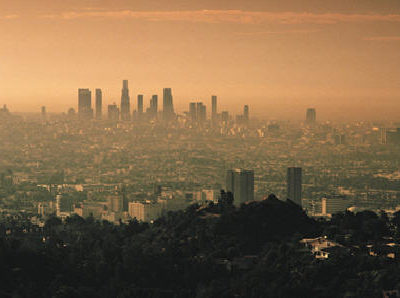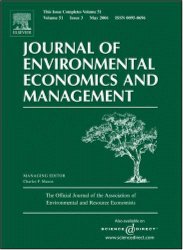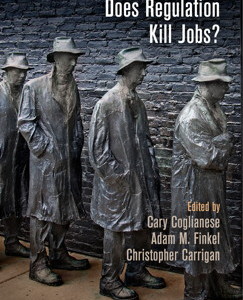environmental economics
Cutting Through the Smog
New research highlights the importance of reducing ozone pollution and suggests ways to do it.
As a change of pace, here’s a post that’s not about Trump, Pruitt, or their friends in Congress. Two recent papers highlight the importance of EPA’s tightening of the air quality standard for ozone and suggest some ways of doing so that could be more acceptable to industry. (We’re talking about ground-level smog here, not …
Continue reading “Cutting Through the Smog”
CONTINUE READINGThe Economic Impact of AB 32 on California
New study suggests that the economic impact of cutting carbon is modest.
What is the economic impact of California’s climate change regulations? Will they reduce actual emissions or just shift them out-of-state? A new study by Resources for the Future addresses an important part of the puzzle. Reasearchers at RFF modeled the effect of compliance costs of $10/ton or $22/ton of CO2 on highly energy-intensive industries such as …
Continue reading “The Economic Impact of AB 32 on California”
CONTINUE READINGLegacy Goods and Environment Preservation
The value of some goods like wilderness today depends on their futures.
Normally, economists imagine, equal experiences become less valuable as they recede further into the future. But some types of goods don’t have that kind of relationship with future experiences. They can become more valuable as they extend farther into to the future. Take this blog post, for example. I’m really happy that you’re reading it …
Continue reading “Legacy Goods and Environment Preservation”
CONTINUE READINGWhat Economists Don’t Get About Our Relationship With Nature
No, climate change isn’t less of a problem if people get used to a devastated world.
People often adjust to problems that seem terrible upfront. Some studies show, for instance, that people who who lose limbs are very unhappy for awhile but then start to adjust to their positions. Some economists argue that something similar may happen with climate change — we might find that we don’t miss extinct animals or …
Continue reading “What Economists Don’t Get About Our Relationship With Nature”
CONTINUE READINGWhat’s New in Environmental Economics?
Some interesting recent publications.
It sometimes takes awhile for journals to reach my desk as they circulate among faculty, so this isn’t hot off the presses. But I’ve been looking at some recent issues of JEEM (the Journal of Environmental Economics and Management), and I found a number of very interesting articles. Fully grasping the articles would require a …
Continue reading “What’s New in Environmental Economics?”
CONTINUE READINGJobs & Regs
The empirical evidence suggests that job loss from regulation is small.
It seems to be easy to make arguments one way or another about the effect of regulation on jobs. What does the evidence say? Those seeking an answer would do well to look at a recent book on the subject by Coglianese, Finkel, and Carrigan. Although the book is broader in scope, it provides a careful …
Continue reading “Jobs & Regs”
CONTINUE READINGThe Bogus Trade-Off Between the Environment and Jobs
Paul Krugman has a NY Times column arguing, from a Keynesian point of view, that Obama’s climate change program won’t cost jobs. One of my posts a couple of years ago suggested the same idea: in a slack economy, regulatory requirements are a form of stimulus that can actually create jobs because industry has to spend …
Continue reading “The Bogus Trade-Off Between the Environment and Jobs”
CONTINUE READINGDiscount Rates and Middle-Class Stagnation
Discount rates are how economists measure the importance of the future versus the present. If the discount rate is low, we care a lot about the future; the reverse is true if the rate is high. It turns out that one of the key factors driving the discount rate — maybe the key factor — is …
Continue reading “Discount Rates and Middle-Class Stagnation”
CONTINUE READINGOMB’s Dubious Claim to Regulatory Expertise
The head of OIRA – the Office of Information and Regulatory Affairs at OMB– is often called the White House’s regulation czar. OIRA is charged with reviewing the cost-benefit analysis of all major government regulations. This task is all about economics. Yet OIRA has never established the kind of reputation for economics expertise held by …
Continue reading “OMB’s Dubious Claim to Regulatory Expertise”
CONTINUE READINGWhy the Environment Requires Government Protection: Some Simple Economics
The key to understanding the economics of environmental protection is the concept of externalities. An externality is simply a cost that one person or firm imposes on another. In general, an externality means that an activity is causing more harm than it should. Of course, a company or individual could decide to voluntarily correct the …
Continue reading “Why the Environment Requires Government Protection: Some Simple Economics”
CONTINUE READING







